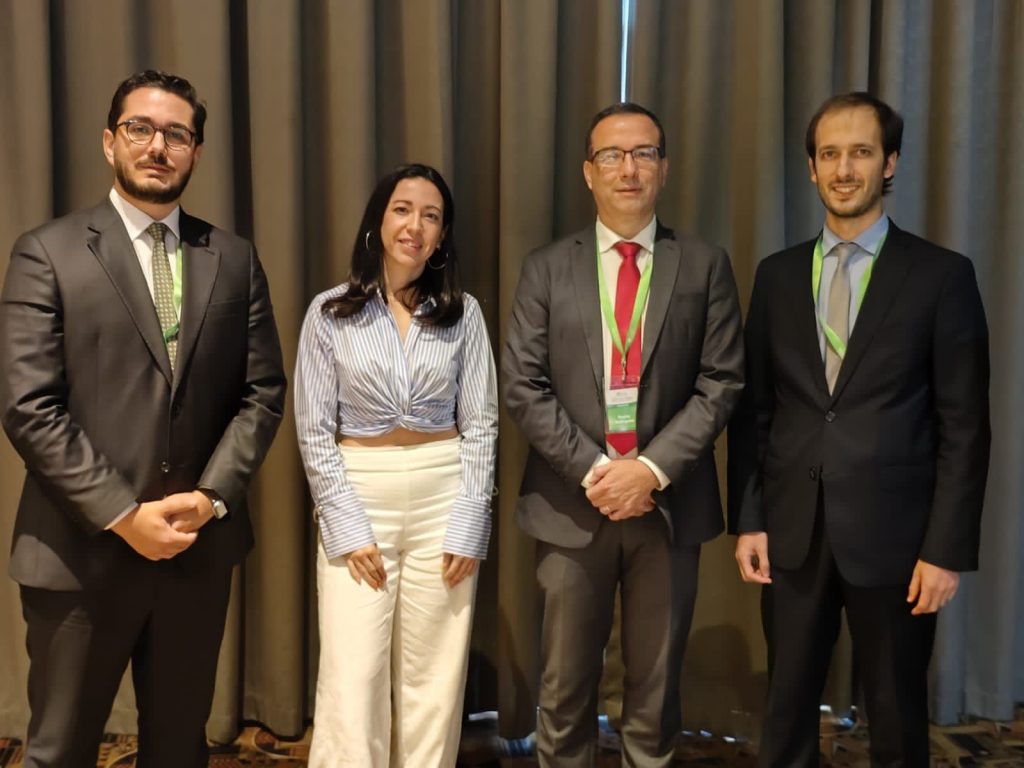The U.S. Grains Council’s (USGC’s) Latin America (LTA) office is working with Costa Rican authorities and key stakeholders in their plan to initiate an ethanol-gasoline blending program. Federico Salcedo, USGC LTA regional ethanol consultant, participated in an event that took place in the capital city of San Jose last week and included a panel session on ethanol and biofuels.
The VI International Congress on the Regulation of Public Services, hosted by the Regulatory Authority of Public Services of Costa Rica (ARESEP), brought together 25 national and international panelists and more than 300 local attendees, including authorities, academia and representatives of consumers and the private sector, to discuss matters related to transportation, energy transition and public services. The event involved high-level government officials, including Vice President Stephan Brunner and General Regulator Eric Bogantes.
Salcedo joined the panel “Myths and Realities of Ethanol,” highlighting the social, economic, environmental and technical benefits of ethanol blending and providing valuable experiences from countries such as the United States, Canada and Bolivia, that already have experience blending ethanol.
“Costa Rica has made significant progress in environmental protection and renewable and clean energies. The country can draw on national and international experiences to move forward with an ethanol-gasoline blending program that will contribute to meeting its transport sector decarbonization goals and, at the same time, generate socio-economic opportunities for its people,” Salcedo said.
Other speakers on the panel included Ronny Rodriguez, vice minister of energy of Costa Rica, and Agustin Torroba, biofuels specialist at the Inter-American Institute for Cooperation on Agriculture (IICA). Rodriguez presented the main stages and pillars of the country’s roadmap to initiate its ethanol blending program, while Torroba focused on the ethanol-related experience of the Southern Cone countries (Argentina, Uruguay and Brazil).
Over the past decade, the Central American region has made some attempts to blend ethanol with gasoline. Still, it has found resistance from stakeholders, mainly from vehicle and gasoline distributors, refineries and consumers. Fuel consumption for the transportation sector has increased more than seven percent over the past few years, driven by a growing middle class and increased vehicle ownership. In 2022, the Costa Rican government announced its plan to blend ethanol with gasoline (E10) by the end of 2024.
“The Council has been working closely with government and industry leaders in Costa Rica and other countries in Central America, including Panama and Guatemala, to support their plans to start blending programs and explore alternatives to expand ethanol usage countrywide. The region has a high potential to produce, import and market ethanol and other biofuels, as it has no oil production and must import all its gasoline and fuels,” Salcedo said.
About The U.S. Grains Council
The U.S. Grains Council develops export markets for U.S. barley, corn, sorghum and related products including distiller’s dried grains with solubles (DDGS) and ethanol. With full-time presence in 28 locations, the Council operates programs in more than 50 countries and the European Union. The Council believes exports are vital to global economic development and to U.S. agriculture’s profitability. Detailed information about the Council and its programs is online at www.grains.org.

